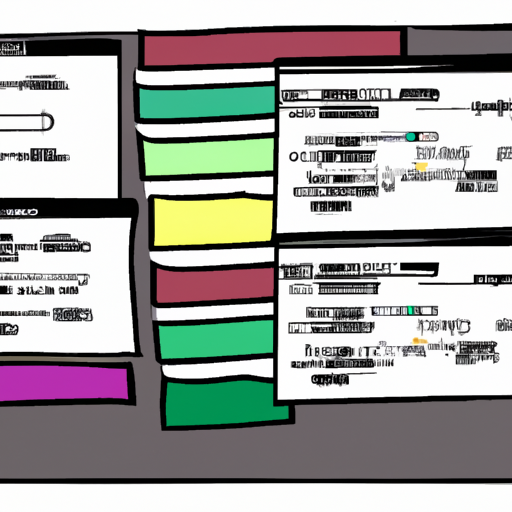Blockchain technology has the potential to revolutionize the HR industry by improving data security, efficiency and transparency. It can simplify processes such as recruitment and payroll and provide reliable verification of employee information.
In recent years, blockchain technology has gained significant attention and expanded its influence beyond the realm of cryptocurrency.
One industry that is poised to benefit greatly from this revolutionary technology is Human Resources (HR). Blockchain in HR has the potential toto transform traditional HR operations, streamline processes and improve data security.
But what exactly is blockchain, how does it work and what impact can it have on the HR sector?
In this article, we will delve into worldblockchain technology andexplore its application in the HR sector. We’ll discuss the inner workings of blockchain, its potential to transform HR operations, the benefits and challenges of its implementation, and ultimately how it’s shaping the future of HR.
Get ready to discover the exciting possibilitiesthat blockchain brings to the world of human resources.
-
- 1.Introduction to Blockchain Technology A Revolution in HR
-
- 2.Understanding the Inner Workings of Blockchain in HR
-
- 3.Transforming HR Operations with Blockchain Technology
-
- 4.Exploring the Benefits and Challenges of Implementing Blockchain in HR
-
- 5.The Future of Human Resources How blockchain is shaping the sector
1. Introduction to the Blockchain Technology Revolution in Human Resources
Blockchain technology has gained significant attention in recent years, with its potential applications extending far beyond the financial sector.An area inthat blockchain is poised to revolutionize operations is human resources (HR).
The decentralized and immutable nature of blockchain can address many of the challenges facing HR departments, such as data security, trust and efficiency.
At its core, blockchain is a decentralized and distributed ledgerwhich records transactions across multiple computers.
Unlike traditional databases, where a central authority controls and manages data, blockchain allows for a transparent and secure way to record and store information.
This technology ensures that every transaction or piece of datais time-stamped, verified, and permanently stored on the blockchain.
In the HR context, blockchain can be used to securely store and manage employee data, such as personal information, qualifications, and employment history.work.
This decentralized approach eliminates the need for a central authority, such as an HR department, to maintain and verify employee records. Instead, each employee can have their own digital identity
2. Understanding the Inner Workings of Blockchain in HR
Blockchain technology is revolutionizing various industries, and human resources (HR) is no exception.Understanding the inner workings of blockchain in HR is crucial to understanding its potential impact on the sector.
In essence, blockchain is a decentralized and transparent digital ledger that records transactions across multiple computers or nodes.transactions are grouped into blocks and linked to form a chain.
Each block contains a unique cryptographic hash, a timestamp, and a reference to the previous block, ensuring data security and immutability.
In the context of resourceshuman resources, blockchain can be used to streamline and improve various processes such as recruitment, employee screening, payroll and performance management. By leveraging its inherent characteristics, blockchain can provide numerous benefits to both employers and employees.
One of the key advantages of blockchain in HR is the increased trust and transparency it provides. Traditional HR systems often rely on centralized databases that can be vulnerable to hacking or manipulation. Instead, the decentralized nature of blockchain ensures data storage across multiple nodes,
3. Transforming HR operations with Blockchain technology
Blockchain technology has the potential to revolutionize HR operations, bringing efficiency, transparency and security to various processes. By decentralizing data storage and eliminating the need for intermediaries, blockchain can streamline HR operations, saving time and resources for organizations.
One area where blockchain can have a significant impact is the recruitment and hiring process.
Traditional methods of verifying candidate information, such as employment history and educational credentials, can be time-consuming and error-prone.However, like any emerging technological development, it also comes with its own set of benefits and challenges.
One of the key benefits of implementing blockchain in HR is the increased transparency it provides.With a blockchain-based system, all transactions and changes in employee records, such as hiring, promotions, or terminations, are recorded in a decentralized ledger system.
This means that every stakeholder involved, including employees, managers, and auditors, canaccess and verify information, ensuring accuracy and preventing any unauthorized changes.
This transparency helps build trust between all parties involved and reduces the chances of fraudulent activities.
Another significant advantage of blockchain in HR is improved security. Traditional HR systems often rely onof data centralized systems that are vulnerable to cyber attacks and data breaches.
However, blockchain technology eliminates the need for a central authority, making it extremely difficult for hackers to compromise the system. Using cryptographic algorithms
5. The Future of HR How blockchain is shaping the sector
Blockchain technology has the potential to revolutionize the HR sector in various ways, leading to significant changes in the future of HR practices.Some ways blockchain is shaping the sector
1.Improved data security One of the key advantages of blockchain technology is its ability to provide improved data security.In HR, where sensitive information is handled by employees, such as personal details, salaries and performance appraisals, data security is of utmost importance. The decentralized and immutable nature of blockchain ensures that data stored on the network cannot be alteredor manipulated, reducing the risk of data breach and unauthorized access.
2.Efficient recruitment process The recruitment process can be time-consuming and expensive for organizations.Blockchain can simplify this process by creating a decentralized database of credentials, qualifications and experience.This eliminates the need for manual document verification and allows employers to quickly and securely access verified information about potential candidates, reducing the time and effort required for recruiting.
In conclusion, blockchain technology has the potential to revolutionize the HR sector in numerous ways. Through its decentralized and transparent nature, blockchain can streamline HR operations, improve data security, and improve employee trust.
The benefits of implementationblockchain in HR are vast, including reduced costs, increased efficiency and improved accuracy. However, challenges such as regulatory concerns and the need for skilled professionals in blockchain technology must be addressed for successful implementation.
Despite these challenges, the future of HR looks promising, with blockchain technology shaping the sector and paving the way for more efficient and trusted HR. As blockchain continues to evolve and gain wider adoption, HR professionals must remaininformed and prepared to embrace this transformative technology.
…..






